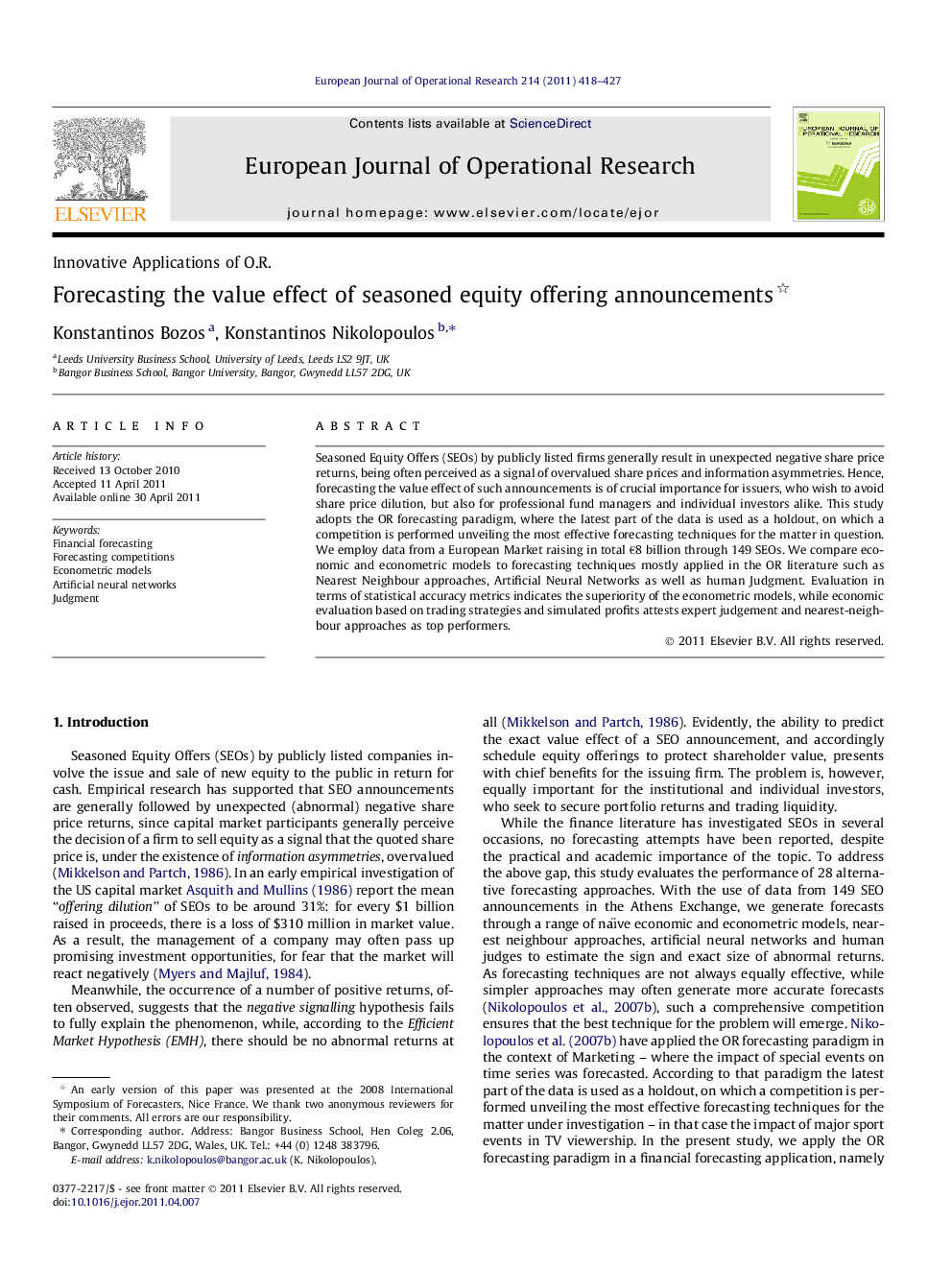| Article ID | Journal | Published Year | Pages | File Type |
|---|---|---|---|---|
| 476981 | European Journal of Operational Research | 2011 | 10 Pages |
Seasoned Equity Offers (SEOs) by publicly listed firms generally result in unexpected negative share price returns, being often perceived as a signal of overvalued share prices and information asymmetries. Hence, forecasting the value effect of such announcements is of crucial importance for issuers, who wish to avoid share price dilution, but also for professional fund managers and individual investors alike. This study adopts the OR forecasting paradigm, where the latest part of the data is used as a holdout, on which a competition is performed unveiling the most effective forecasting techniques for the matter in question. We employ data from a European Market raising in total €8 billion through 149 SEOs. We compare economic and econometric models to forecasting techniques mostly applied in the OR literature such as Nearest Neighbour approaches, Artificial Neural Networks as well as human Judgment. Evaluation in terms of statistical accuracy metrics indicates the superiority of the econometric models, while economic evaluation based on trading strategies and simulated profits attests expert judgement and nearest-neighbour approaches as top performers.
► We examine the value effect of seasoned equity offering announcements, using data from 149 cases, raising in total €8 billion. ► We adopt the OR forecasting paradigm, where the latest part of the data is used as a holdout. ► We perform a forecasting competition among 5 classes of 28 different forecasting approaches. ► Evaluation based on statistical accuracy and forecast errors indicates the superiority of the econometric models. ► Economic evaluation from simulated trades suggests the dominance of expert judgement and nearest-neighbour approaches.
